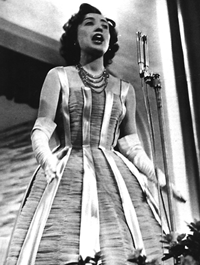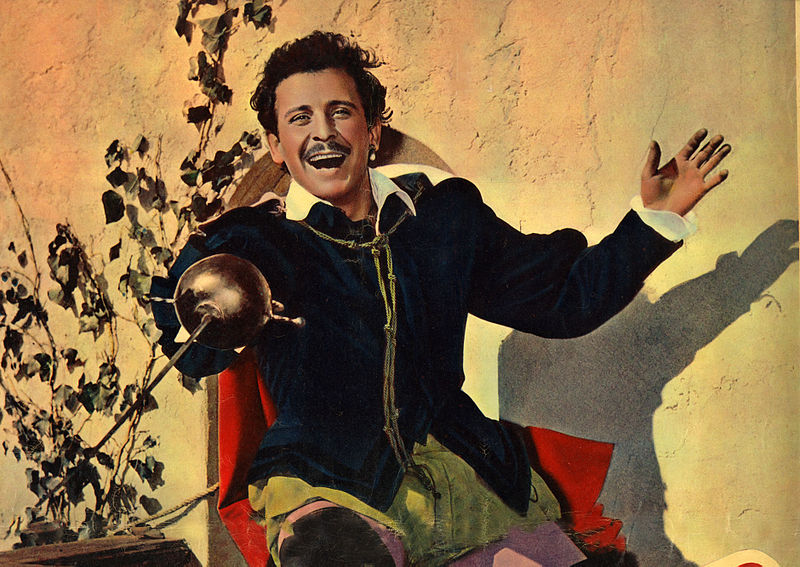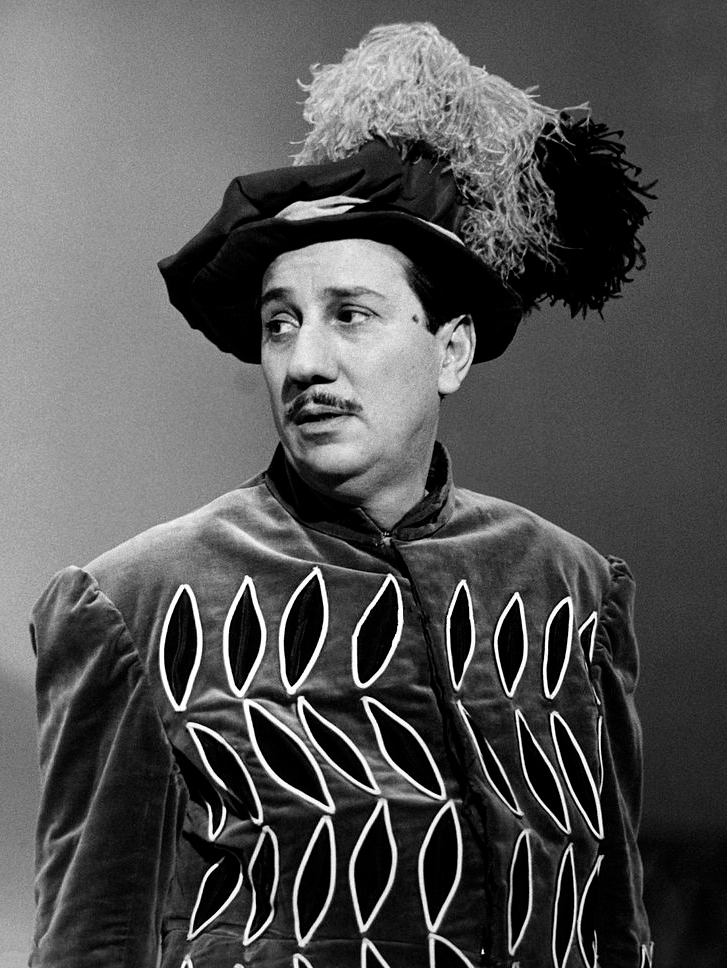|
Sanremo Music Festival 1956
The Sanremo Music Festival 1956 was the sixth annual Sanremo Music Festival, held at the Sanremo Casino in Sanremo, province of Imperia between 8 and 10 March 1956. The show was presented by actor Fausto Tommei, assisted by television announcer Maria Teresa Ruta. According to the rules of this edition every song was performed by a newcomer artist in the music scene, selected through the "Voci Nuove" competition among 6.446 participants, with some artists performing multiple songs. The winner of the Festival was "Aprite le finestre", performed by Franca Raimondi. The festival also inspired the international Eurovision Song Contest, which held its inaugural edition this year, and the two first placed songs of this edition represented Italy at Eurovision. Participants and results This Sanremo Music Festival edition included twenty songs performed by six singers, spread over three consecutive evenings, in a format of two semi-finals and a final. The first two semi-final nights wer ... [...More Info...] [...Related Items...] OR: [Wikipedia] [Google] [Baidu] |
Fausto Tommei
Fausto Tommei (29 July 1909 – 23 July 1978) was an Italian actor, voice actor and presenter. Life and career Born in Venice, Tommei began his stage career immediately after graduating in Law. He became first known as a radio personality, working as an actor, comedian and presenter for EIAR and for some local radio stations in Milan. In 1940 Tommei started appearing in films, usually cast in character roles. In 1941 he got critical acclaim for his performance on stage in ''Poeta fantastico'', directed by Orazio Costa. After the war he focused his activities on revues, returning to dramatic roles in the mid-1950s. In 1956 he presented the Sanremo Music Festival. Between 1956 and 1958 he directed the Teatro delle Maschere in Milan. He was also active as a dubber. A deeply religious man, Tommei was a Franciscan tertiary. Partial filmography * ''Ecco la radio!'' (1940) * ''Tentazione'' (1942) - Josef, il portiere della casa Wendich * ''Cercasi bionda bella presenza'' (1942) ... [...More Info...] [...Related Items...] OR: [Wikipedia] [Google] [Baidu] |
Alberto Testa (lyricist)
Alberto Testa (11 April 1927 – 19 October 2009) was an Italian composer, lyricist, singer, and writer for television. Born at Santos, São Paulo, Brazil, he was known primarily for his work as a lyricist. His words were set by such songwriters as Tony Renis (such as "Quando, quando, quando" and " Grande grande grande") and Memo Remigi. Shirley Bassey and Mina are among the singers who performed his songs. He also wrote songs for such artists as Luciano Pavarotti, Andrea Bocelli, and Celine Dion (such as "The Prayer" and " I Hate You Then I Love You"). "The Prayer", performed in 1998 by Celine Dion and Andrea Bocelli — which Testa co-wrote with David Foster, Tony Renis, and Carole Bayer Sager — won the Golden Globe Award for Best Original Song at the 56th Golden Globe Awards. He died in Rome , established_title = Founded , established_date = 753 BC , founder = King Romulus (legendary) , image_map = Map of comune of Rome (metrop ... [...More Info...] [...Related Items...] OR: [Wikipedia] [Google] [Baidu] |
1956 In Italian Music
Events January * January 1 – The Anglo-Egyptian Sudan, Anglo-Egyptian Condominium ends in Sudan. * January 8 – Operation Auca: Five U.S. evangelical Christian Missionary, missionaries, Nate Saint, Roger Youderian, Ed McCully, Jim Elliot and Pete Fleming, are killed for trespassing by the Huaorani people of Ecuador, shortly after making contact with them. * January 16 – Egyptian leader Gamal Abdel Nasser vows to reconquer Palestine (region), Palestine. * January 25–January 26, 26 – Finnish troops reoccupy Porkkala, after Soviet Union, Soviet troops vacate its military base. Civilians can return February 4. * January 26 – The 1956 Winter Olympics open in Cortina d'Ampezzo, Italy. February * February 11 – British Espionage, spies Guy Burgess and Donald Maclean (spy), Donald Maclean resurface in the Soviet Union, after being missing for 5 years. * February 14–February 25, 25 – The 20th Congress of the Communist Party of the Soviet Union is held in Mosc ... [...More Info...] [...Related Items...] OR: [Wikipedia] [Google] [Baidu] |
Sanremo Music Festival By Year
Sanremo (; lij, Sanrémmo(ro) or , ) or San Remo is a city and comune on the Mediterranean coast of Liguria, in northwestern Italy. Founded in Roman times, it has a population of 55,000, and is known as a tourist destination on the Italian Riviera. It hosts numerous cultural events, such as the Sanremo Music Festival and the Milan–San Remo cycling classic. Name The name of the city is a phonetic contraction of ''Sant'Eremo di San Romolo'', which refers to Romulus of Genoa, the successor to Syrus of Genoa. It is often stated in modern folk stories that Sanremo is a translation of Saint Remus. In Ligurian, his name is ''San Rœmu''. The spelling ''San Remo'' is on all ancient maps of Liguria, the ancient Republic of Genoa, Italy in the Middle Ages, the Kingdom of Sardinia, and the Kingdom of Italy. It was used in 1924 in official documents under Mussolini. This form of the name appears still on some road signs and, more rarely, in unofficial tourist information. It has been th ... [...More Info...] [...Related Items...] OR: [Wikipedia] [Google] [Baidu] |
Corde Della Mia Chitarra
"Corde della mia chitarra" ("Strings of my guitar") is an Italian song written by , composed by , and performed by Nunzio Gallo and Claudio Villa. The song is the winner of the Italian national Sanremo Music Festival 1957 where it was performed twice by the two singers and the in the Eurovision Song Contest 1957. Both original recordings of the song are ranked among the top 100 most successful songs in Italy in 1957. Lyrics and melody With live guitar accompaniment provided by Piero Gozo for Nunzio Gallo's version as seen in the Eurovision contest, and with a vocal ranging between light and classical opera styles, the song is a ballad in the ''chanson'' style as well as the opera tones popular in Italy and Europe in the 1950s. Gallo sings of his mixed feelings at seeing a former lover and realising that she is no longer interested in him. He asks the strings of his guitar to play for him alone, since she has no interest in their music anymore. Eurovision Song Contest The s ... [...More Info...] [...Related Items...] OR: [Wikipedia] [Google] [Baidu] |
Nunzio Gallo
Nunzio Gallo (25 March 1928 – 22 February 2008) was an Italian singer. He was born in Naples and represented his country in the 1957 Eurovision Song Contest, coming 6th. The song he performed, "Corde Della Mia Chitarra", is famous for being the longest song ever played for Eurovision at 5:09 before the new rules came into place. Gallo was also an actor appearing in over 20 films. Gallo suffered severe brain haemorrhage in September 2007 from which he never fully recovered. He died on 22 February 2008 in Telese Terme. ''Esctoday'', 24 February 2008. He was the father of actor and singer Massimiliano Gallo
Massimiliano Gallo (born 19 June 1968) is ...
[...More Info...] [...Related Items...] OR: [Wikipedia] [Google] [Baidu] |
Eurovision Song Contest 1957
The Eurovision Song Contest 1957 was the second edition of the annual Eurovision Song Contest. Organised by the European Broadcasting Union (EBU) and host broadcaster (HR) on behalf of ARD, the contest, originally known as the (English: Eurovision Grand Prize of European Song 1957 ) was held on Sunday 3 March 1957 and was hosted at the in Frankfurt, West Germany by German actress Anaid Iplicjian. Ten countries took part, with , , and the competing for the first time and joining the original seven participating countries from the first contest in . A number of changes to the rules from the previous year's event were enacted, with each country now represented by only one song, which could be performed by up to two performers on stage. The voting system received an overhaul, with each country's jury now comprising ten individuals who could award one vote to their favourite song. The results of the voting were now conducted in public, with a scoreboard introduced to allow the p ... [...More Info...] [...Related Items...] OR: [Wikipedia] [Google] [Baidu] |
Giovanni D'Anzi
Giovanni D'Anzi (1 January 1906 – 15 April 1974) was an Italian songwriter. Biography D'Anzi was born in Milan. In 1935 he wrote music and lyrics of " O mia bela Madonina" ("My beautiful little Madonna"), a song dedicated to his hometown which soon became very popular and a sort of unofficial city anthem. Between the 1930s and 1950s Giovanni D'Anzi and Alfredo Bracchi formed a very prolific pair of songwriters. They worked for radio, cinema and theater productions. Several of their songs were great hits. Among them ''"Ma le gambe"'', ''"Bambina innamorata"'', ''"Ma l'amore no"'', 'Voglio vivere così', ''"Ti parlerò d'amor"''. His song ''"Malinconia d'amore"'' has been sung by both Luciano Pavarotti and José Carreras. Most of their songs were in Milanese dialect, and described ironically characters of the past in Milan, for example ''"La gagarella del Biffi Scala"'' (the spoiled daughter of Mr Biffi Scala) and ''"El Tumiami de Luret"'' (the braggart from piazzale Lore ... [...More Info...] [...Related Items...] OR: [Wikipedia] [Google] [Baidu] |
Bixio Cherubini
Bixio Cherubini (27 March 1899 – 14 December 1987) was an Italian lyricist, playwright and poet. Life and career Born in Leonessa, Cherubini was a descendant of composer Luigi Cherubini. He started composing poems and lyrics during the World War I, in which he enlisted as a volunteer. After working several years in Rome as a Poste italiane employee, in 1927 he moved to Milan to focus on songwriting. Around this time he formed a successful professional relationship with Cesare Andrea Bixio, with whom he wrote classics such as "Tango delle capinere", "La canzone dell'amore", "Violino tzigano", "Trotta cavallino", "Mamma".Antonio Virgilio Savona; Michele Lo Straniero. "Cherubini, Bixio". Gino Castaldo (edited by). ''Dizionario della canzone italiana''. Curcio Editore, 1990. During World War II, Cherubini was active as a partisan with the Val Malchirolo brigade. After the war, while sporadically working with Bixio and other composers, he started a long and fruitful professional ... [...More Info...] [...Related Items...] OR: [Wikipedia] [Google] [Baidu] |
Furio Rendine
Furio Rendine (23 March 1920 – 22 February 1987) was an Italian composer, lyricist, producer, organizer and conductor. Life and career Born in Naples, after getting a degree in law Rendine graduated in piano, harmony and composition at the San Pietro a Majella Conservatory. In the second half of the 1940s he moved to Milan, where he was active as conductor of dance orchestras and started collaborating with EIAR.Enzo Giannelli. "Rendine, Furio". Gino Castaldo (edited by). ''Dizionario della canzone italiana''. Curcio Editore, 1990. Rendine debuted as a composer in 1947, and got his first success in 1948 with the song "A Zingarella". In 1950 he founded the record label Casa Musicale Rendine. Three of his songs won the Festival di Napoli competition: in 1957 "Malinconico Autunno", performed by Marisa Del Frate, in 1958 "Vurria", performed by Nunzio Gallo and Aurelio Fierro, and in 1966 "Bello", performed by Sergio Bruni and Robertino. He himself was artistic director of the ... [...More Info...] [...Related Items...] OR: [Wikipedia] [Google] [Baidu] |
Domenico Modugno
Domenico Modugno (; 9 January 1928 – 6 August 1994) was an Italian singer, actor and, later in life, a member of the Italian Parliament. He is known for his 1958 international hit song "Nel blu, dipinto di blu (song), Nel blu dipinto di blu", for which he received Grammy Awards for Grammy Award for Record of the Year, Record of the Year and Grammy Award for Song of the Year, Song of the Year. He is considered the first Italian cantautore.Domenico Modugno: biography Early life The youngest of four children, Modugno was born at Polignano a Mare, in the province of Bari (Apulia), on 9 January 1928. His father, Vito Cosimo Modugno, was a Municipal police (Italy), municipal police commander, w ...[...More Info...] [...Related Items...] OR: [Wikipedia] [Google] [Baidu] |
Gorni Kramer
Gorni Kramer (22 July 1913 – 26 October 1995) was an Italian songwriter, musician and band leader. Biography He was born Francesco Kramer Gorni at Rivarolo Mantovano (Lombardy). Despite the exotic sound of Gorni Kramer in the Italian language, which led part of his audience to believe he was a foreigner or had adopted a fancy pseudonym, it was his real name. His family name was Gorni, and Kramer his middle name, after the American cyclist Frank Kramer, who won the road race at the 1912 World Championships and made a strong impression on Gorni's father. Kramer learned music at a very young age, thanks to his father, a musician. The first instrument he learned how to play was the accordion, with which he performed as a child in his father's band. He then studied double bass at the Conservatory in Parma and obtained his diploma in 1930. He started working as a musician for dance bands, then in 1933, aged 20, he formed his own jazz group. This new American musical genre was ... [...More Info...] [...Related Items...] OR: [Wikipedia] [Google] [Baidu] |





